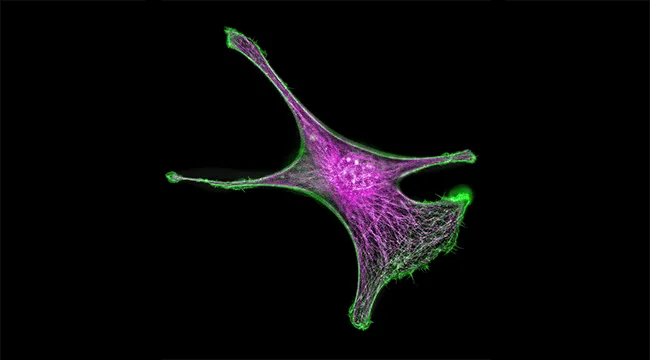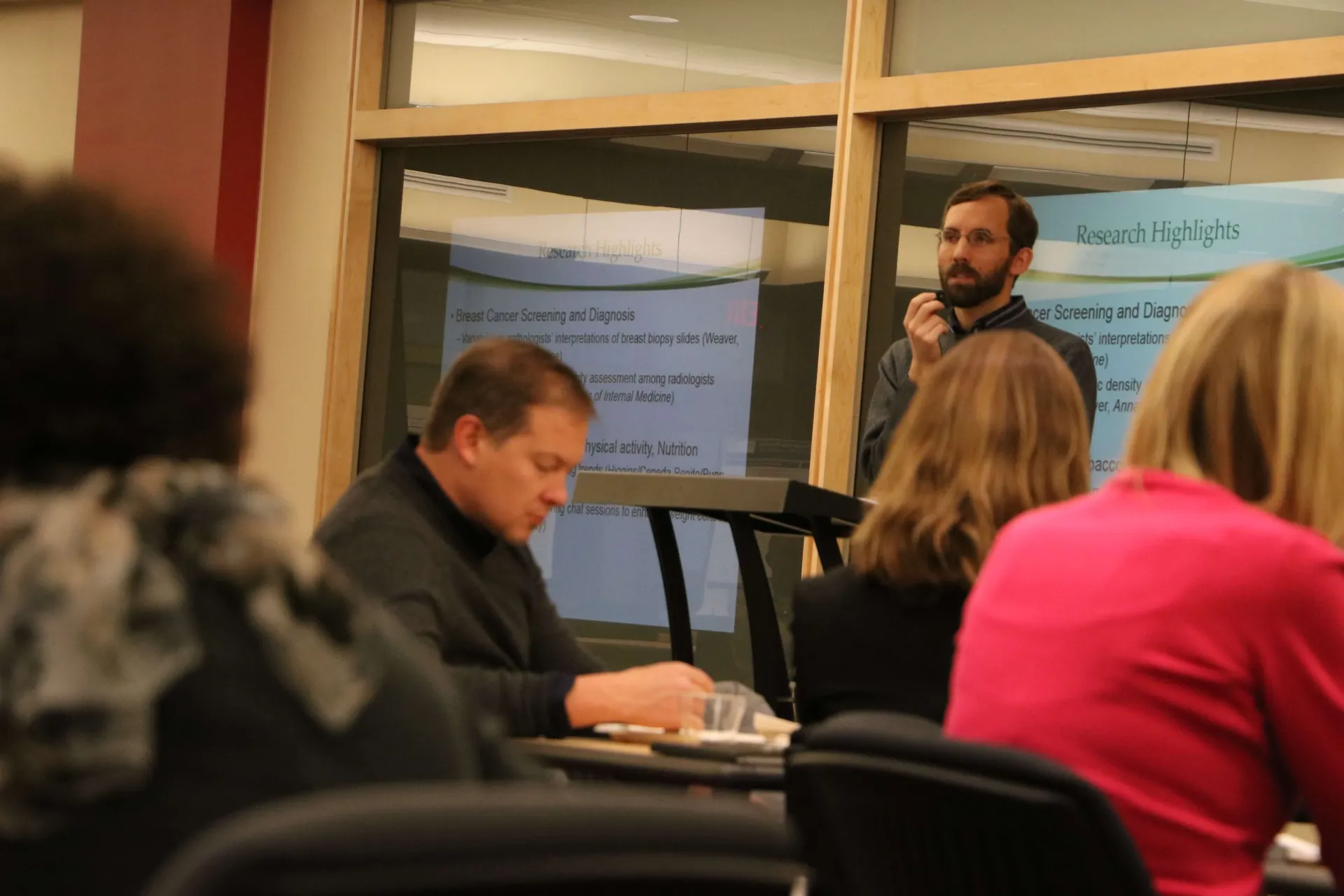Our members work to address timely questions that are relevant to cancer prevention, early detection, and survivorship with a focus in the areas of tobacco control, cancer screening, and quality of life. There is additional focus on these themes in the context of our rural catchment area.
Population Sciences and Cancer Outcomes Program Meetings
The Population Sciences and Cancer Outcomes program meets on the first Wednesday of every month from noon - 1:00 p.m.
Population Sciences and Cancer Outcomes News

R1 Larner Spotlight: Skin Deep—Tracing the DNA Clues Behind Skin Cancer
Why Qualitative Research Matters: Q&A With Elise Tarbi, PhD, AGPCNP-BC
R1 Larner Spotlight: Can Less Treatment Still Cure HPV+ Cancer?
Honoring Vermont’s Caregivers: The Unseen Backbone of Cancer Care
UVMCC Launches Emerging Leaders Corps
Meet Tom Ahern, PhD, MPH: One of the UVMCC’s Breast Cancer Researchers


